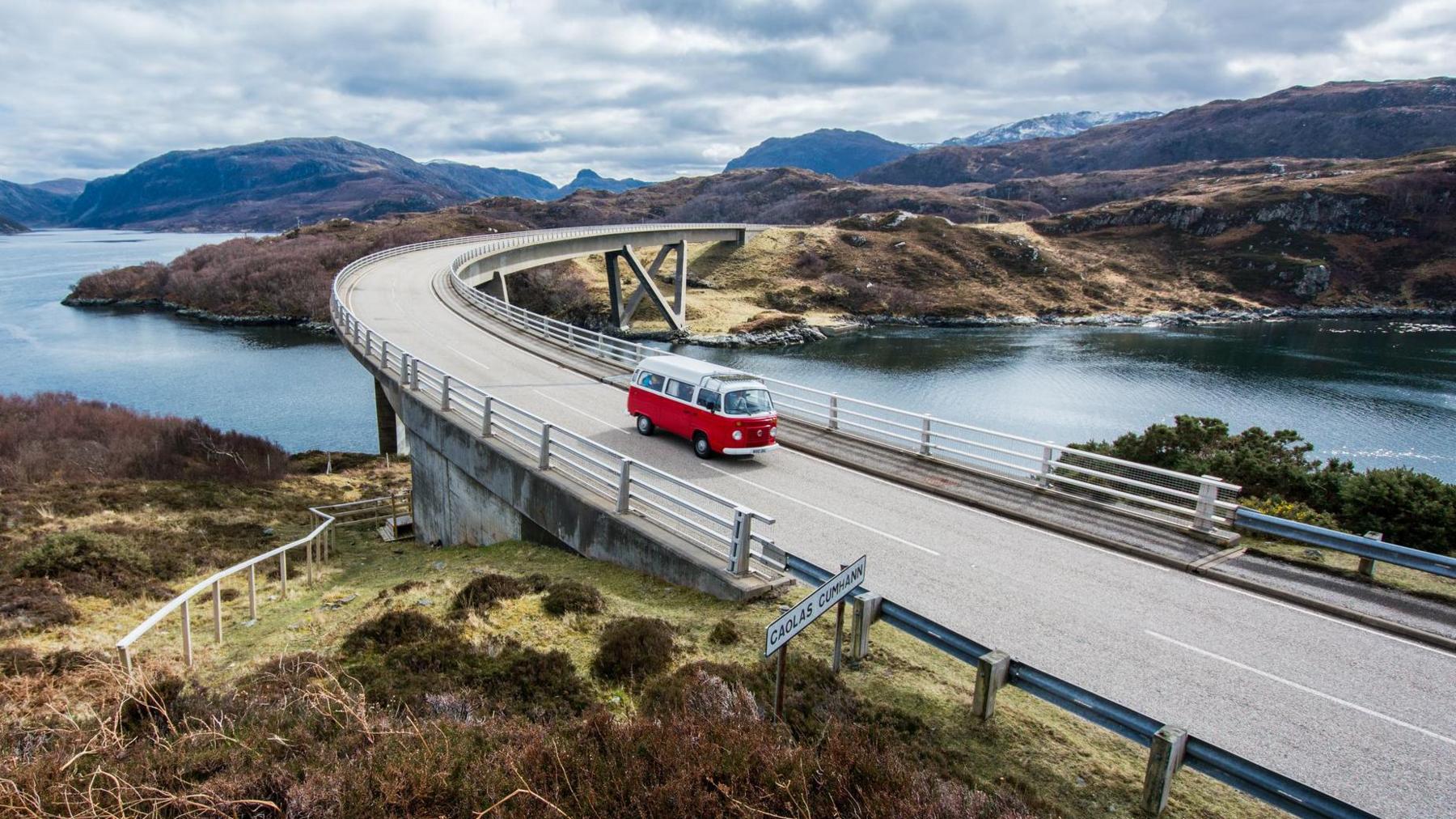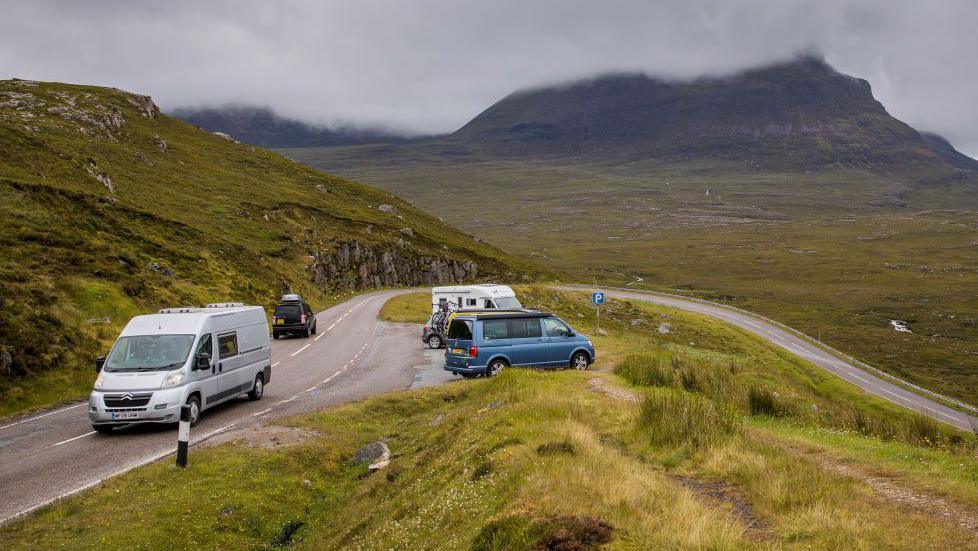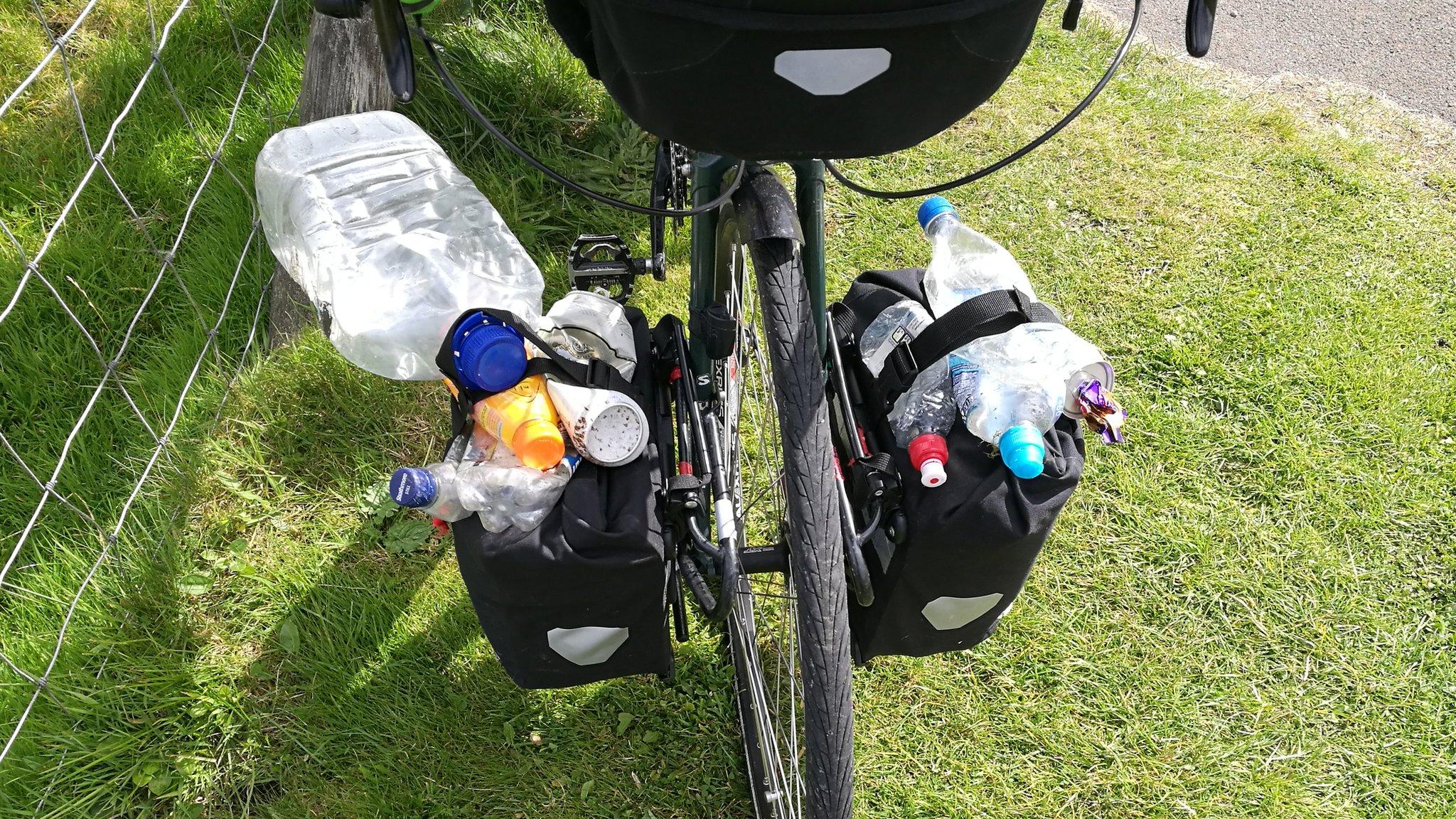NC500 visitors asked to sign responsible tourism pledge

The NC500 tourist route was launched in 2015
- Published
Visitors travelling the North Coast 500 have been asked to sign a pledge aimed at encouraging responsible behaviour.
The tourist route was launched in 2015 and involves 516 miles of roads around the north Highlands.
The initiative is promoted as important to the local economy, but over the years concerns have been raised about speeding on rural roads.
North Coast 500 Ltd, the company that markets the route, said its new visitor pledge, external would increase awareness around responsible driving, parking, waste disposal and use of local shops.
Almost 300 people have signed the pledge so far, according to the NC500 website.
North Coast 500 Ltd said its initiative represented a "promise" to protect the natural beauty, cultural heritage and community spirit of the Highlands.
Chairman David Hughes said: "We've all seen an increase in visitor numbers over the last few years and it's important not to downplay the importance these visitors have on the local economy.
"We can't control important infrastructure which supports the tourism industry, such as signage, rubbish/disposal facilities and parking.
"However, by asking visitors to sign the pledge, we are asking tourists to be part of the solution, helping us maintain the North Highlands' natural beauty for everyone to enjoy."

One of the aims of the pledge is to encourage responsible driving and parking
The NC500 starts and finishes in Inverness and communities along its route include Ullapool, Golspie and Thurso.
Described as the ultimate road trip, it takes visitors through some of Scotland's most dramatic landscapes.
They include the Flow Country Unesco World Heritage site and Assynt, a large area of mountains and lochs.
Driver behaviour has been an issue in the past.
In 2018, Transport Scotland issued leaflets to encourage better driving on single-track roads.
MSP David Stewart called for a 10-year strategic plan for the route in 2016 to ensure the roads could cope with large volumes of traffic.
Other initiatives aimed at NC500 visitors have included one involving coffee cup to help reduce litter.
Related topics
- Published24 August 2017
